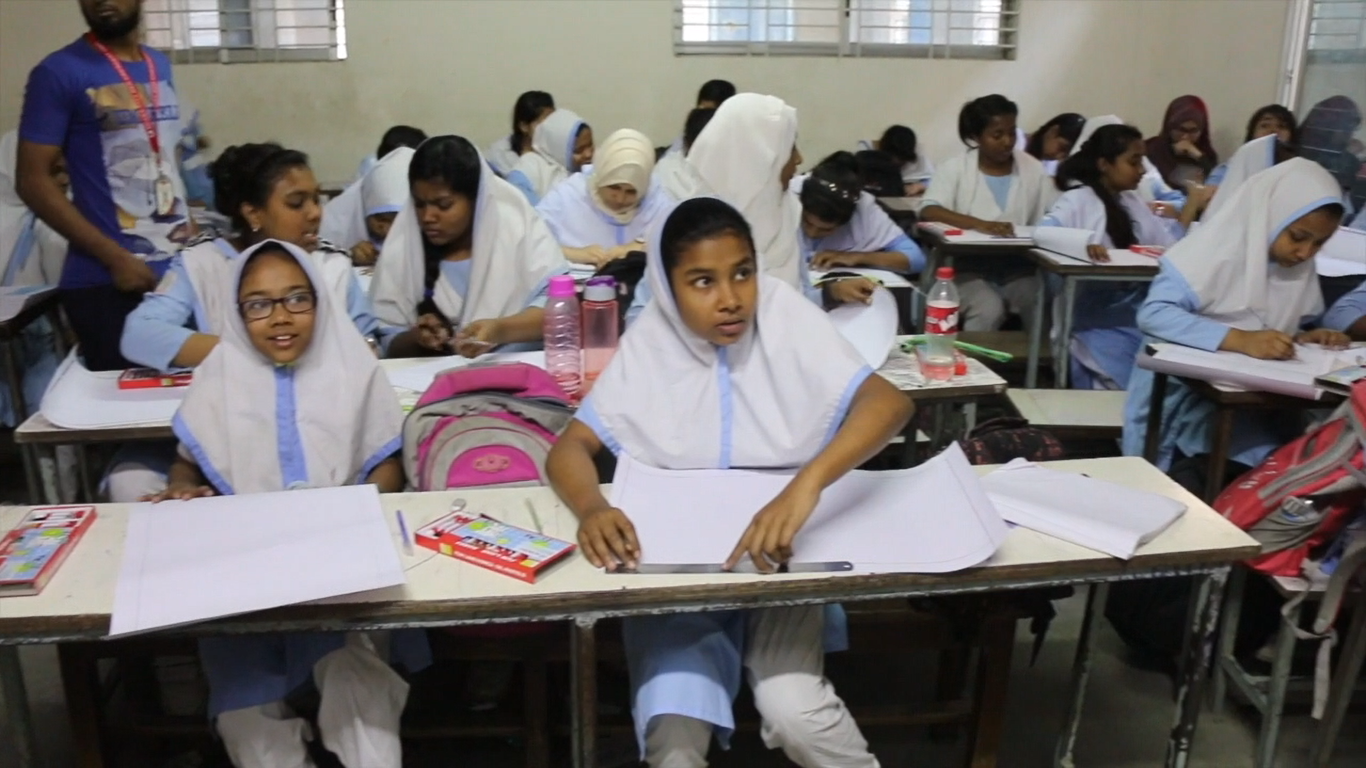Dhaka earthquake and emergency preparedness
The INFORM Global Risk Index for 2018 places Bangladesh among the countries with the highest risk of exposure to natural disasters. Almost every year, the country experiences a variety of natural hazards, such as cyclones, floods, and droughts, but for decades, a major threat to the population has been earthquakes. Bangladesh lies at a point where three tectonic plates meet, making it one of the most volatile regions in the world. In the past 50 years, it has experienced more than 250 earthquakes, some over 6.0 in magnitude, causing large-scale loss of life and damage to infrastructure.
As one of the most disaster-prone cities in the world, the country’s capital, Dhaka, is particularly experienced in disaster risk management. However, it remains considerably exposed to the impact of earthquakes due to rapid urbanisation and limited open spaces for evacuation. These factors, coupled with the size and density of the population, considerably increase the risk of injuries and fatalities, especially since the occurrence of an earthquake in a location like Dhaka cannot be predicted with precision. Nevertheless, disaster preparedness techniques help to save lives and minimise destruction within the city’s limits.
Between June 2017 and February 2019, the Dhaka Earthquake and Emergency Preparedness (DEEP) project aimed to strengthen the resilience of affected communities and reinforce the response capacities of Dhaka authorities. Led by German Red Cross in collaboration with the Bangladeshi Red Crescent, Christian Aid Bangladesh, and Action Contre La Faim, it ran for a total of 21 months. Project partners worked to equip Dhaka’s population with increased knowledge of earthquake risks and response coordination. Efforts were also dedicated to building the capacities of national and local authority emergency services, such as the fire brigade, health centres, and blood donations. As part of the initiative, Bangladeshi Red Crescent Society staff and volunteers engaged schools and community associations in preparedness and risk reduction actions, helping them to react in the safest way possible, during and after earthquakes hit.
“I think it’s very important to be aware that preparedness has two facets – one is institutional preparedness, and the other one is community-level preparedness. When an earthquake or a hazard strikes in a disaster-prone area, it is the people who will respond first. It’s very important to look at the interface between organisations and people”, underlined Gaurav Ray from the German Red Cross. He stressed the importance of enhancing cooperation between local authorities and the volunteers that respond to emergencies. As members of the communities they serve, volunteers are often uniquely placed to understand the specific needs and challenges in situations of emergency.
Throughout the 21-month project, several training sessions and simulations were carried out to prepare first responders, volunteers, and the general public for earthquakes and risks that they pose. Courses were delivered in cardiopulmonary resuscitation (CPR), search and rescue operations, psychological first aid, and other forms of emergency assistance that are central to effective disaster management. 200 Red Cross Youth volunteers were trained as facilitators to be able to train first responders, and an additional 3,000 responders were equipped to provide assistance in emergency situations. Through the project’s awareness-raising activities, nearly 35,000 students were directly involved in developing school safety preparedness plans and participating in school disaster management committees, as well as in various school simulation exercises.

“We believe in the work in communities that our partners have done; in building capacities and in building awareness”, said Daniela D’Urso, Head of the European Commission’s Directorate-General for European Civil Protection and Humanitarian Aid Operations (DG ECHO) office in Bangladesh. The DEEP project reflected DG ECHO’s emphasis on education, with activities prioritising the vital role of education in preparing communities and building disaster resilient societies.
Advocacy was another important aspect of the project, as the implementation included connecting with the government and other stakeholder organisations to discuss ways to strengthen urban resilience.
Building resilience is a long-term process that needs to be context-appropriate and embedded in national policies, strategies and frameworks – an important precondition for sustainable results. National policies and programmes require firm political commitments and accountability, and may involve institutional change and technical support, including in-country coordination mechanisms. In this context, the DEEP project focused on increasing the capacities of local authorities by incorporating volunteers into the country’s policies and programmes.
Basic information
Activity name
Dhaka earthquake and emergency preparedness
Country
Bangladesh
Duration
June 2017 - February 2019
Partners
German Red Cross, Bangladesh Red Crescent, Christian Aid Bangladesh, Action Contre La Faim
URL
Directorate-General for European Civil
Protection and Humanitarian Aid Operations (DG ECHO)
The project was financially supported by DG ECHO, under the 2017 Humanitarian Implementation Plan (HIP) for South and East Asia and the Pacific.

